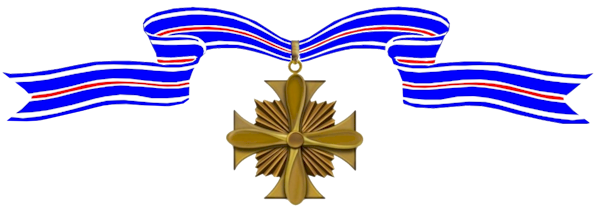The President of the United States of America, authorized by Act of Congress, July 2, 1926, takes pleasure in presenting the Distinguished Flying Cross to Captain Reece Baker Black (AFSN: 0-41040), United States Air Force, for extraordinary achievement while participating in aerial flight as Pilot of a B-26 attack bomber on the night of 28 January 1952. Weather conditions were unusually unfavorable for the performance of the assigned mission which was the interdiction of the enemy supply system. A very low broken cloud cover frequently obscured the target and thick haze severely restricted visibility. Despite this impediment, Captain Black sighted, through a break in the clouds, a large enemy convoy. Diving to the attack in a narrow valley, surrounded by rugged terrain, Captain Black made repeated low-level bombing and strafing attacks until eleven of the supply-laden vehicles were destroyed. This highly successful mission, performed in spite of very unfavorable weather and in the face of dangerous terrain conditions dealt a heavy blow to the enemy transport system. By his high courage and skill, Captain Black has brought great credit to himself, his organization and the United States Air Force.

Awards Received
-

Silver Star
-
Silver Star

Headquarters, 7th Air Force, Special Orders No. G-105 (January 8, 1969)The President of the United States of America, authorized by Act of Congress July 9, 1918 (amended by an act of July 25, 1963), takes pleasure in presenting the Silver Star to Lieutenant Colonel Reece Baker Black (AFSN: 0-41040), United States Air Force, for gallantry in action in connection with military operations involving conflict with an opposing armed force as I Corps Army of the Republic of Vietnam Air Liaison Officer directing combat support missions at Kham Duc, Republic of Vietnam, on 12 May 1968. On that date, Colonel Black flying his O-2 aircraft in support of Special Forces and United States Army personnel, controlled fire suppression, evacuation, and re-supply missions during the evacuation of friendly troops. Colonel Black, with complete disregard for his own personal safety in the face of intense ground fire made repeated low passes to detect the hostile positions and direct fire suppression to keep the entry and exit corridors open. By his gallantry and devotion to duty, Colonel Black has reflected great credit upon himself and the United States Air Force.

